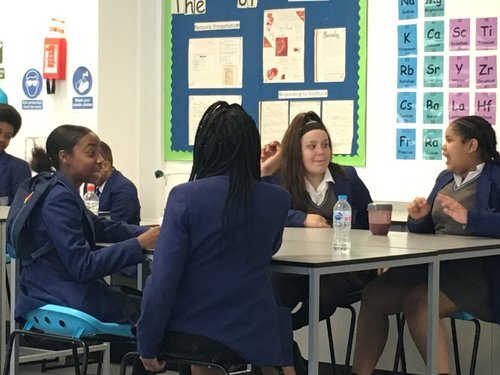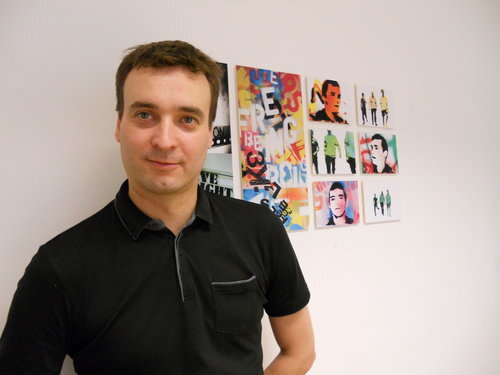
Our Blog

Switching to a strength-based approach
‘The good folk of South Yorkshire Housing Association are essentially optimistic folk,’ and this year they have embarked on an ambitious plan to roll out strengths-based ways of working. Helen explains the profound changes this requires. For example, working alongside people with a wide range of talents, instead of ‘supporting people with complex needs’. Allowing co-creation to become an everyday way of working, not an exception from time to time. Finding people willing to champion change, despite doubt and occasional ridicule from the rest of their team.

It’s how we do what we do that will make change…
Reflecting on the discussion at the launch of the Better Way’s Call to Action in November 2019, Sonya writes ‘None of our organisations are perfect, we must continue to learn and we should be proud of our work, yet humble about the small differences we are making as the big changes are made by people themselves in their own lives – we are there only to facilitate that. However, until we embrace our work as a political agenda, and until people stop being grateful for the small amount we do and hold it as their right to have a home, have a job, have food, we cannot be part of a collective movement for change. Let us learn how to do that better together.’

Time for “relationship-centred government”? How about it Mr Johnson?
In his first major speech as Prime Minister Boris Johnson talked about connections. ‘Inspiration and innovation, cross fertilisation between people, literally and figuratively, cannot take place unless people can bump into each other, compete collaborate invent and innovate,’ he said. David Robinson, co-founder of Better Way, takes up the challenge. If the new team at Number 10 were to think about spending priorities, public services, and so on from the perspective of relationships, what might change?

The importance of community
Personal relationships and connections, rather than services, can make the most difference in people’s lives, especially when times are hard. Amy Middleton works at the Mayday Trust, which knows this. She writes: ‘Shifting the focus from weakness, fixing, and segregation, as well as overcoming the systemic barriers is at the heart of everything we do with the Personal Transitions Service, so for me it seems obvious that a total paradigm shift is essential if we are to really make a positive difference. A focus on organisations without ‘walls’ allows us to take a step back, rebalance the power dynamics and put people in the driving seat of their own lives. By building positive support networks and remaining in local communities, people are more likely to make a sustained change in their lives and not only move on from their tough time, but also be prepared for the next bump in the road.’

Building trust in communities to take power through Community Organising
Increasingly the public sector wants to involve local people, but many are suspicious of the authorities or are even fearful of engaging. Nick Gardham, the CEO of Community Organisers, explains what they are doing locally to build trust and capacity for local people to take more power.

Better Way leadership principles into practice
To mark the start of our third annual Gathering in July 2019, Polly Neate writes about putting Better Way leadership into practice in her organisation, Shelter. It’s opening up a debate about how to make a Better Way happen, close to home.
‘The Better Way principles demand radical change. They speak of compassion and kindness but – or perhaps sadly because of that – they absolutely do not speak of the status quo.’

Teaching children to be active citizens in schools
At our roundtable on sharing power, we identified that we need to do much more in schools to build an appreciation of what it is to be an individual in society so that young people can be active citizens and take more power. Alison Gelder from Together for the Common Good reflects on the roundtable and writes about what they are doing through the Common Good Schools Programme.

Applying ‘advantaged thinking’ to communities
Nick Sinclair, Director of the Local Area Coordination Network, was inspired by our roundtable on tactics to apply these and other ‘Advantaged Thinking’ questions to their work in communities.

Crazy about the kid
Cate Newnes-Smith, inspired by our national discussions in A Better Way, decided to try and set up a group of strategic thinkers across the public, voluntary and private sectors in Surrey who could make life better for younger people. They started with a series of questions, and so far have identified what they believe will really make a difference in children’s lives. It’s about creating genuine connection and community. Or put it another way, being ‘Crazy about the kid’.

Radical listening
Karin Woodley writes about how to use radical listening to create organisations ‘without walls’ in a blog drawn from her opening remarks at our May roundtable on that theme.
‘Radical listening is a process that enables us to disrupt stereotypes, tackle social injustices and transfer control of our organisations back to the people we work with. It helps us to regain control of our destinies so that we do what matters most and has real value to our service users. Radical listening drives a liberatingly authentic and creative culture of ‘outside-in’ continuous improvement. It stops us tinkering with existing approaches and enables us to make fundamental change that is rooted in our knowledge of what matters most to the people we were established to support.’

Insights for A Better Way: improving services and building strong communities
An introduction to Insights for a Better Way from its editor and Better Way co-convenor, Caroline Slocock.

Creating relationships, not services
In May we held a roundtable on creating organisations ‘without walls’ - focused on communities and solutions, not institutional self-interest. Clare Wightman introduced the discussion by telling us about the inspirational work of her organisation, Grapevine Coventry and Warwickshire. ‘We’ve always thought that the thing people need in life when they’ve got problems isn’t so much services – services have their place – but good people around them. Services are few. Services have limits – walls if you like - around what they do. But there’s is no limit to what people will do for those they care about.’

We need to reshape the landscape of power
In the fourth blog in our series about sharing power, Richard Bridge likens power to a delta. ‘In the delta it is the pilot’s knowledge of the landscape, what in another context we might call ‘the rules of the game’, that makes them powerful. If we wish to change the relations of power between people and communities, as a practical first step we need to find ways to break up and change the established landscape of power. We have to forcibly change the ‘rules of the game’ in order to create space for new actors and new voices to step in and empower themselves.’ He suggests Citizen’s Assemblies, with members selected by random selection or sortition, as one way forward.

Making not shaping power: first thoughts from the front line
In the third of a series of blogs from contributors to our roundtable on sharing power in April 2019, Rhiannon Bearne writes about the shared tendency of both charities and movements ‘to see power as ‘other’: an entity which is held outside or beyond a person, place or project. For service delivery charities like mine, our job becomes one of developing tools and systems to help people access that special place where power resides, such as central or local government, or the people who commission services. The problem with this approach is that we can end up behaving passively in relation to power. We develop ways of working from the outside to affect power – but, crucially, not to unlock it for ourselves.’

Sharing power? It starts by understanding power and privilege
In the second of a series of blogs following on from our roundtable in April 2019 about sharing power, Sufina Ahmad reflects on the real challenges when power is so interlinked with privilege. Sharing power starts with an understanding of the structures that hold power and trying to work within institutions to change things, she suggests.

Sharing power? A personal reflection
In the first of a series of blogs following on from our roundtable in April 2019 about sharing power, Avril McIntyre reflects on how personal contacts make it much easier to resolve problems and about how to help others in a way that genuinely empowers them.

Local Cornerstone - Purpose versus Targets
As part of our series of essays in Insights for A Better Way, Edel Harris reflects on why principles are better than targets based on her experience of giving power to front-line carers at Cornerstone.

Company citizen seeks partner for mutual advantage
Tom Levitt provides some fascinating case studies from the private sector which illustrate our proposition, 'Collaboration is better than competition', and demonstrate a significant shift in corporate thinking. His essay first appeared in Insights for A Better Way.

Complexity demands collaboration and a new paradigm
In an essay that first appeared in Insights for a Better Way, Toby Lowe gives his reflections on our principle, Collaboration is better than competition.

The Bensham Co-Op: focusing on strengths and mutuality
In another essay from our Better Way publication, Ollie Batchelor gives a brilliant example of 'doing with' rather than 'doing to', showing that 'Building on strengths is better than focusing on weaknesses'.
Featured Writing
